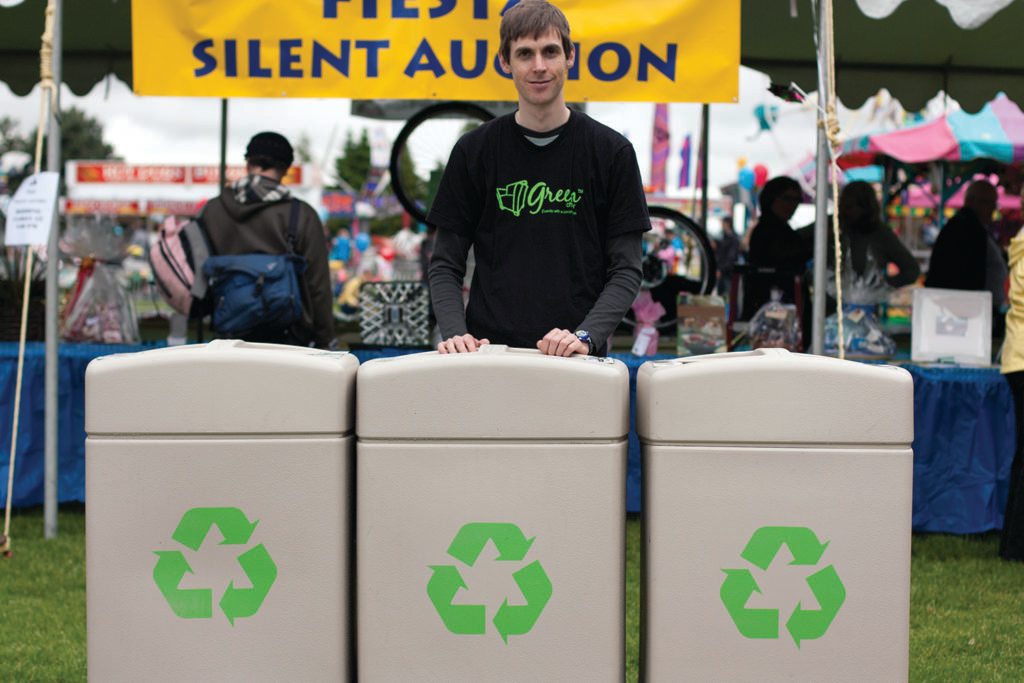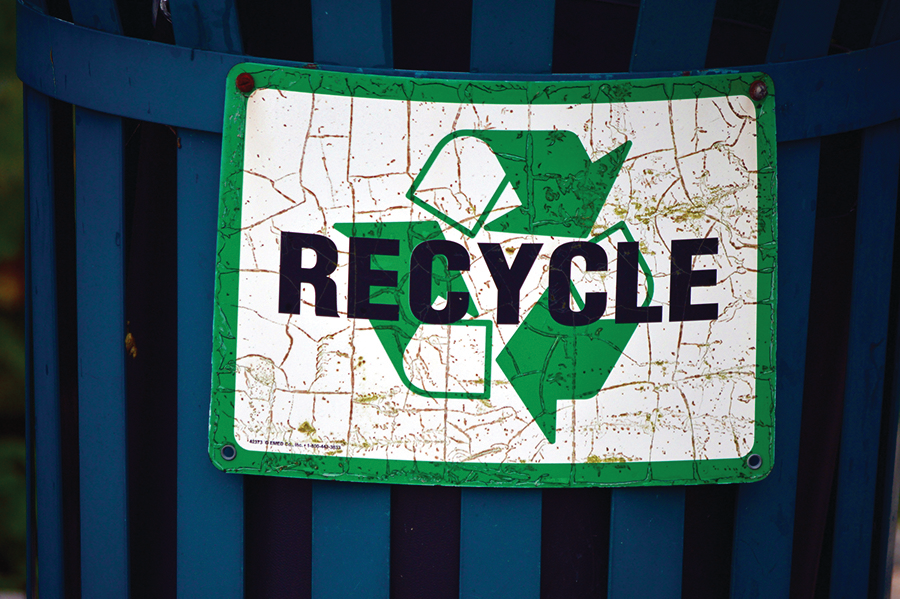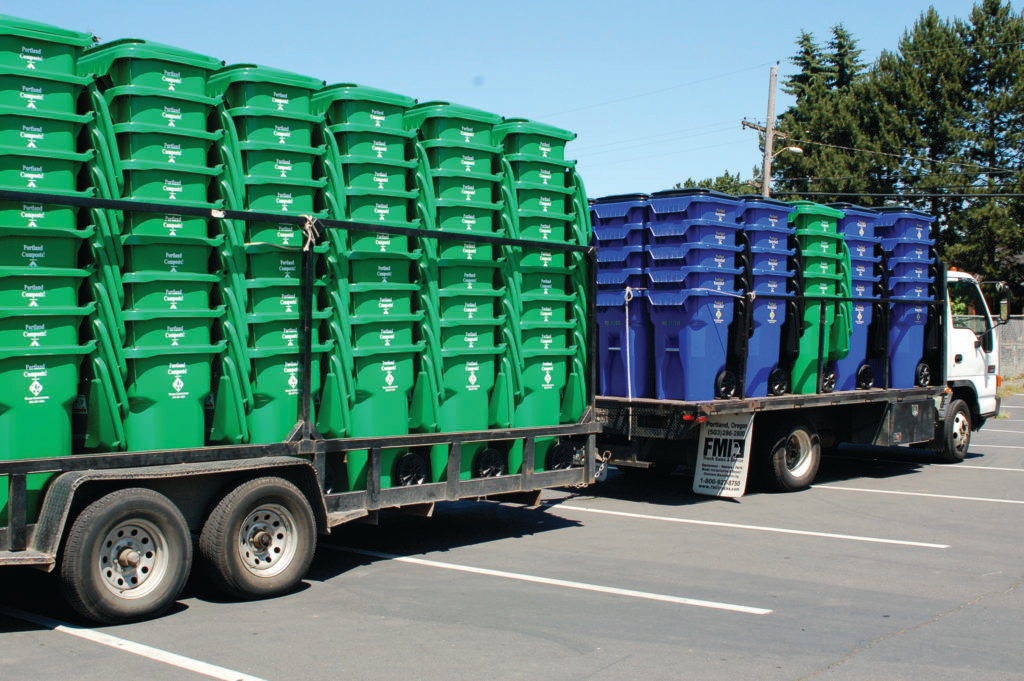
Photo by Phillip Jeffrey
Find your way through the rules of recycling
By Paul Wesslund
Can I recycle my mail with the stapled paper and plastic envelope windows? Do I need to break down cardboard boxes before putting them in the recycling bin? Or should I just give up on recycling because it’s way too complicated?
Three of every five U.S. households have curbside recycling pickup, according to a study by the Sustainable Packaging Coalition. Another 14% have curbside service available but do not subscribe.
Reasons to recycle are both environmental and financial. Recycling 10 plastic bottles, for example, saves enough energy to power a laptop computer for more than 25 hours, according to the Environmental Protection Agency.
Recycling can also help out with your tax bill. Local governments pay for disposing home and office waste, traditionally by burying it in a landfill. But if some of that waste could be sold for reuse, the income would reduce the cost of the waste management program.
The list of recycling rules is long and complicated, but a way to help master them is to try three different types of thinking:
Think like a sorter: When your curbside bin gets emptied, it’s taken to a Materials Recovery Facility where it is dumped onto a conveyor belt where workers pull off items that will gum up the next step in the process, a large screen that jiggles items into a different bin. Think about items that might cause problems with sorting.
Think local: There are about 300 Materials Recovery Facilities around the country, and many of them have different equipment, meaning every community has its own set of rules for what can be recycled.
Find out who handles recycling in your community, and they will have a list of what can be recycled. And of course, there’s an app for that. Two popular apps are Recycle Coach and ReCollect. Just type in your zip code to learn how your local recycling program treats individual items.
Think like an accountant: You might be thinking, it sounds like I’m doing the work for the recycling program. And you are. You could just dump anything and everything in your recycling bin and let the workers sort it out. They would do that––for a price. You can help keep recycling costs low by following the rules.

Here are some of the most-wondered-about recycling rules:
Mail: With one exception, all mail can go in the bin. Staples and plastic windows get sorted out by the machinery. The exception is magazines wrapped in plastic—that kind of shrink wrap is better handled by supermarkets, which specialize in recycling bags and other plastic “stretch wrap” around food, paper towels and other products.
Food containers: When you’re done with the peanut butter jar, no need to rinse it out. It can go right in the bin.
Cardboard boxes: The only reason to break them down is to save space in your bin. They’ll get well crushed in the truck that picks them up.
Pizza cartons: Don’t leave crusts or garlic butter containers in them, but recycling equipment can handle a greasy pizza box just fine.
Plastic bottle caps: Screw the lid back on, and recycle both the bottle and cap.
Labels: You don’t need to remove them.
Plastic straws: Can be recycled, but smaller items tend to fall off the conveyor or through the screen sorters and onto the floor, where they get swept up and hauled off to a normal landfill.

If you want to take the next step in recycling, think about the big picture—the point is to reduce the waste from your home into the world. First, reduce—if you don’t really need to buy something, don’t buy it. Second, reuse—bags and wrapping paper, for example, can have more than one life.
Remember, recycling helps our environment but can also reduce the cost of local waste management programs. Check with your local waste management program to learn more about recycling rules in your community.
Paul Wesslund writes on consumer and cooperative affairs for the National Rural Electric Cooperative Association, the national trade association representing more than 900 local electric cooperatives. From growing suburbs to remote farming communities, electric co-ops serve as engines of economic development for 42 million Americans across 56% of the nation’s landscape.




